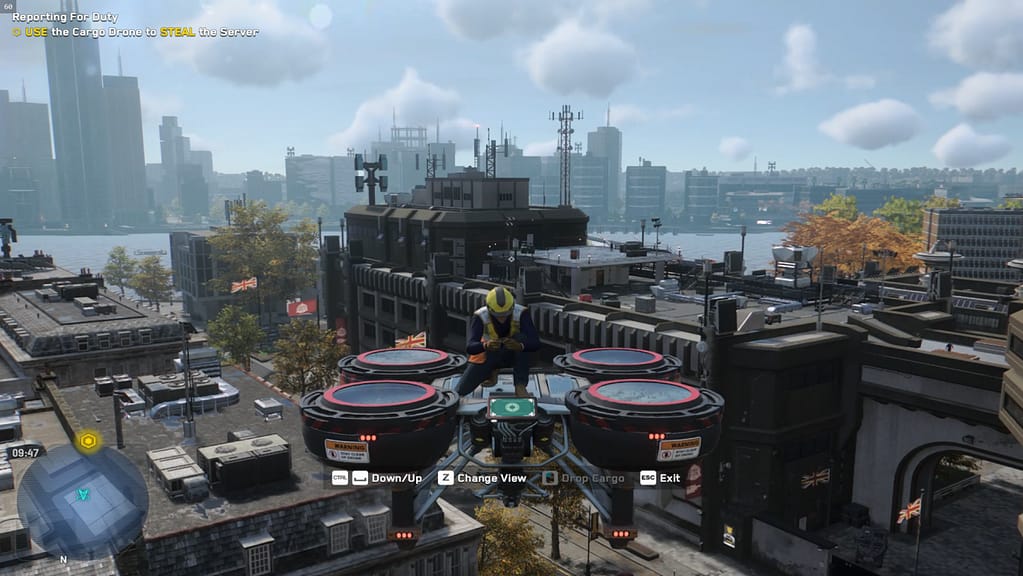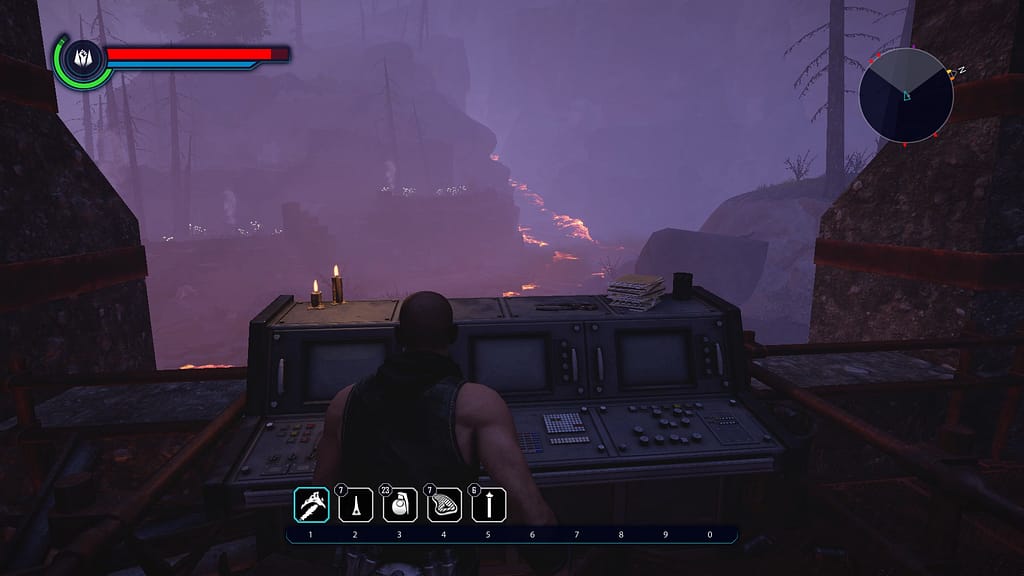I’ve been liking more games lately.
It makes a refreshing change. It’s so easy in the current world to feel skeptical about everything, especially in the games industry. We see it all the time now; people find that negative news and discussing problems are easier to generate interest. Nothing gets people talking like a broken game that annoys people. It gets people engaged. While it’s important to keep track of that, it’s easy to focus only on the negatives.
It’s hard feeling positive about these things, sometimes. Honestly, I understand why. With many games missing deadlines, launching in a broken state, overly ambitious marketing overselling a game’s plans, and poor monetization or pricing, it’s easy to focus on the bad parts of this industry. When I started off my ‘game waffling’, I was one of those people. I look back at some of my articles from 2016-17 and cringe at how angry and edgy I sounded. It just wasn’t a pleasant experience, and I find it doesn’t help.
So, I made a promise to myself in 2022 to try and focus on the positive sides of life, and that means my game articles. That doesn’t mean I’ll gloss over the weaknesses of a game, of course. If there’s something I feel needs to be addressed, I’ll point that out. Today, I’ve got four games that have deep, glaring flaws, but they are all games I enjoy playing. Perhaps if these games wore you thin, this might give you a second glance at them. I think I’ve covered all these games on the site before, so I won’t go into great detail.
Watchdogs: Legion
Kicking off, we have Watchdogs: Legion. The review I’ve already posted on the website, and you can find it by clicking the link here:
It’s a shame the Watchdogs series ended because I think Ubisoft was onto something. The 2014’s botched original release started things off on the wrong foot, while 2016’s Watchdogs 2 set things back on the right path. I rather enjoyed Watchdogs 2, though it seemed Ubisoft lost confidence going into the final game in the trilogy. Despite its impressive setting and the ‘recruit everyone’ mechanic, the game’s lack of player focus, technical issues, and the epitome of Ubisoft’s modern game design brought Legion down.

It’s a shame, certainly. As I mentioned in that article, however, I still ended up enjoying my time with Watchdogs: Legion. The game takes the form of a light immersive sim with the way it handles missions: large, open space with plenty of ways to handle how you want to complete them. Even if the game is horribly unbalanced with how different characters function, tackling these challenges was always entertaining. With the Construction Worker, you can summon a large drone and attack positions from above, often slamming it onto people’s heads before flying away, or you can kill people silently with a spy-silenced pistol. Of course, the startup toolkit every character gets makes the game overpowered and easy, with a spider bot that can do everything your characters can without worrying about detection or an attack.
While Legion is repetitive, and poorly written with bizarre character design, I couldn’t help but get addicted, running around like a psychotic Pokemon master. Sending arthritis-riddled granny in on missions to kill Deadsec police was more enjoyable than I ever imagined, and I loved cruising the city in auto-drive, listening to the many in-game podcasts and radio channels Legion provides. If the main story doesn’t interest you (and I don’t blame anyone for that!) The Bloodlines DLC gives command of Adrian Pearce from the first game, providing Legion with much-needed character agency and feels like a more robust game.
You can buy Legion cheap these days, and while I can’t recommend it at full price, I’d argue it’s worth the pickup today. I ended up using Geforce Now to play it.
Elex
Next up, we have the first Elex, 2017’s latest series by Piranha Bytes. I’ve covered their studio and their games on the website before, including an impressions review of their sequel Elex 2, which you can read here:
I have a very weird relationship with Elex; you can call it love and hate. Sometimes, I’m blown away by how engrossing the world is, and other times, I get annoyed by how obtuse their games are. After spending plenty of time with both games, I have to admit that I prefer the first Elex overall. It’s not that Elex 2 is a bad game, far from it actually. It’s more approachable than the first one, and Elex’s rough starting position is a difficult pill to swallow for many who try it out. It improves on the beginning, combat, and movement in several ways, so in that regard, Piranha Bytes made some effort to change their usual traditional ways.

However, after I spent a lot of time with the sequel, I began to get bogged down. The game’s dialogue feels rather childish, with distasteful characters who feel like a step down from the first game, and after a decently strong first chapter with plenty of interesting side content, Elex 2 degrades into a repetitive, unambitious final act that burned me out of the game completely. Despite these issues, I can still recommend the sequel as long as you don’t take it too seriously, pick it up on a sale and focus on side content. There are some great questlines, and the combat and movement do make it more enjoyable to play.
As for the original, Elex 1 comes with some pretty large faults, mainly its poor interface, broken companion AI, slow start, and clunky combat. It takes a lot of time to get used to, and I’d wager many who tried the game before gave up early on. I did the first couple of times too. However, I put more time into it and seventy hours later, it’s one of my favorite RPGs. It has a unique sci-fi/fantasy setting with plenty of varied biomes and factions, and the quest design and characters are mostly well made.
It’s one of the strangest, most challenging RPGs on the market to enjoy, but once it takes hold, it’s difficult to stop playing it.
Greedfall
If you ask me what I prefer: a sterile, ‘perfect’ game, or a flawed yet ambitious title full of heart, I’ll go with the latter nearly every time. That sums up what I thought of Greedfall.
Spiders have been steadily growing in the pedigree in recent years. Previously, their games while ambitious, struggled to meet demand and their own ideas. The Technomancer, while full of heart, was a disappointing RPG for me. However, their 2019 title Greedfall exceeded my expectations. I wasn’t the only one, as it seems Greedfall saw enough success that Spiders is producing a sequel. Good for them! They also have Steelrising due to release in September, and hopefully, they continue their growth. Greedfall was the game that lifted them, though, and I recommend the game to anyone who wants to try anything different.

Being from a small development team, any RPG like this will come with caveats. I found the combat clunky and the world design a little bland, but the game has real heart and doesn’t flinch away from difficult topics. I found the story, lore, and characters more interesting than I ever expected going in, a grim tale of colonialism in a gritty fantasy world. I found it a solid experience, even if a bit long. Greedfall suffers from the same issue many open-world games do in overstaying their welcome.
Despite its problems, Greedfall was a huge leap in Spider’s game quality, and they deserve all the success they get. I’m looking forward to the sequel!
Cyberpunk 2077
Cyberpunk’s buildup, launch, and problems are legendary, on the same level as other disastrous releases such as Fallout 76, Anthem, Elite Dangerous: Odyssey, Star Wars Battlefront, and others. It’s unfortunate things started the way they did because I’ve spent a great deal of time in Night City and it’s now one of my favorite games ever made.
It’s nearly impossible to overlook Cyberpunk 2077’s flaws, and I’ll never ask anyone to gloss over them. Even after many patches, the game struggles at times. The city design is incredible, yet almost sterile. The civilians and enemies don’t feel particularly well refined, although the 1.5 patches improved things significantly. Civilians spawn better now with a more lively ambiance and they do more things but the AI still feels below competing games on the market. It’s probably the game’s biggest existing flaw. Of course, the bugs are still an issue, even if it’s been greatly improved over time.
One thing I love about the game is the gameplay overall and the story. The narrative of Night City not caring about you is something I get behind. There’s no ‘save the world’ tale we get in other RPGs. It’s about saving yourself. Even if the game lacking time limits and agency is a problem, I’m happy they went this route: one thing I hate more than most is being rushed. Even if the main quest overall is quite short if you rush through, there’s a ton of side content and hidden gems all over the map. Turning off the in-game map does wonder, and I recommend doing that for any playthrough. Night City is incredibly well made, and even if I’d love to see more interaction in future patches, there’s still a wonder to exploring the map. There’s a lot not shown.

Gigs are large, open-ended spaces with plenty of room for experimentation and solid, subtle worldbuilding. I was surprised how much I got away with, and many interactions I didn’t know were possible. Combat, while messy, gives plenty of different ways to tackle enemies. The gunplay was more robust than I ever expected, and the changes to knife-throwing finally gave that a chance too. I loved combining hacking with guns and melee for maximum carnage. With the 1.5 change to the map, you no longer have them show up everywhere, which improves the organic feel of their arrival. Even all the NCPD police incidents have their cool quirks, with more shards and lore hidden around, some of which open up other quests.
I’ve talked about Cyberpunk 2077 so much already, so I won’t go into it much more. I have 250 hours played across two playthroughs, which is more than any other story-based game I’ve ever played. The only exception is Skyrim, which is only because of mods. I haven’t modded Cyberpunk at all. Even when I finish my second run, I know I’ll start a third. I’m just that invested in the game. It may lack the interactive, deep immersion smaller games like Deus Ex: Mankind Divided’s world had (but it’s on a much smaller scale) and I wish it borrowed more from games like Red Dead Redemption 2. However, the balance of a powerful narrative, beautiful city design, and enjoyable gameplay makes Cyberpunk 2077 a game I’ll never forget. Hopefully, people give it more of a chance.
Conclusion
That’s it for now! I’ve been writing several impression reviews on indie games recently and continuing my experience with the excellent Steam Deck. I intend to keep those coming. Several cool games have launched recently, such as Two Point Campus, Cult of the Lamb, and Farthest Frontier, all of which I hope to try out at some point.
This was a micro-break for me because it’s nice talking about the ‘flawed but fun’ games every so often. Games don’t have to be perfect to still be enjoyable!
#gamer #gamingnews #indiegame #Strategy #videogames pcgaming